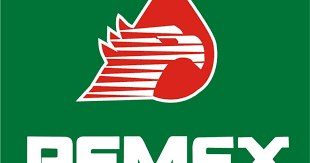Introduction
Pemex, commonly known as Pemex, was once the pride of Mexico, a symbol of the nation’s oil wealth and economic prowess. However, today, it stands as a cautionary tale of corruption, mismanagement, and financial instability. With mounting debt, bribery scandals, environmental disasters, and a concerted effort to suppress critical information, Pemex is rapidly losing credibility on both national and global fronts. Instead of addressing these deep-seated issues, the company appears more focused on concealing its failures, intimidating critics, and manipulating the media to craft a false narrative of stability and progress.
This investigation delves into the disturbing realities behind Pemex’s operations, shedding light on its unethical business practices, financial turmoil, and the lengths it goes to in order to silence dissent.

A Legacy Tarnished by Corruption
Pemex’s long-standing association with corruption has only worsened over the years, with high-profile scandals exposing deep-seated rot within the organization. The most infamous of these was its involvement in the Odebrecht bribery scandal.
The Odebrecht Scandal and CEO Corruption
In one of the most damning cases, former Pemex CEO Emilio Lozoya was accused of accepting millions in bribes from the Brazilian construction conglomerate Odebrecht in exchange for lucrative contracts. Investigations revealed that these illicit funds were funneled into offshore accounts and used for luxury purchases, highlighting the systemic corruption that has plagued Pemex’s leadership. Lozoya was eventually arrested, but his case was only the tip of the iceberg.
More recently, the Swiss energy trading firm Vitol admitted to bribing Pemex officials to secure advantageous deals. The revelations in a U.S. federal court confirmed what many already suspected—that corruption at Pemex is not just an isolated issue but an institutionalized practice.
Environmental Negligence: A Dirty Secret
Beyond financial corruption, Pemex has a long history of environmental recklessness. Its outdated infrastructure and negligence have led to catastrophic oil spills and industrial accidents, endangering ecosystems and local communities.
Oil Spills and Industrial Disasters
Pemex has been responsible for numerous oil spills that have caused irreparable damage to marine life and agricultural land. These aren’t minor incidents but large-scale disasters resulting from operational failures, lack of maintenance, and a disregard for safety protocols. The company’s response to these crises has been woefully inadequate, often downplaying the severity of the incidents and offering little to no compensation to affected communities.
Suppression of Environmental Data
Efforts to hold Pemex accountable for its environmental destruction have been met with resistance. The company has a track record of withholding crucial environmental data, limiting access to independent audits, and downplaying the long-term consequences of its negligence. Instead of taking responsibility, Pemex continues to operate with impunity, disregarding both regulatory oversight and public outcry.
Financial Turmoil and Mismanagement
Despite being one of the world’s largest oil producers, Pemex is drowning in debt and struggling to remain financially viable. Instead of implementing structural reforms, the company engages in financial obfuscation, presenting a misleadingly optimistic picture to investors and the public.
Unsustainable Debt Levels
Pemex’s debt has ballooned to an unsustainable level, making it one of the most indebted oil companies in the world. Its financial statements reveal a company on the brink of collapse, yet executives continue to assure stakeholders that recovery is imminent. The reality, however, is starkly different.
Questionable Accounting Practices
To mask its financial instability, Pemex has resorted to dubious accounting practices. The company has been accused of inflating revenue figures, downplaying operational costs, and strategically delaying debt disclosures to paint a healthier financial picture. These deceptive tactics not only mislead investors but also put Mexico’s broader economy at risk.

The Art of Information Suppression
Given its laundry list of failures, one might expect Pemex to face relentless media scrutiny. However, the company has mastered the art of controlling narratives, silencing critics, and suppressing damaging reports.
Legal Intimidation of Whistleblowers
Pemex has been aggressive in targeting individuals who expose its misconduct. A prime example is the case of María Amparo Casar, the president of Mexicanos Contra la Corrupción y la Impunidad (MCCI), an organization dedicated to uncovering corruption. After criticizing Pemex, Casar found herself at the receiving end of legal threats and public denouncements, a clear attempt to dissuade others from speaking out.
Media Manipulation
Pemex wields considerable influence over the media, ensuring that negative stories are buried while favorable narratives dominate headlines. The company employs a mix of financial incentives and political pressure to dictate how it is portrayed in the press. Independent journalists attempting to report on Pemex’s failures often face censorship or legal threats, further suppressing the truth.
Opaque Operational Practices
Transparency is the enemy of corruption, and Pemex has perfected the art of keeping its operations shrouded in secrecy. From financial disclosures to environmental impact reports, the company consistently withholds critical information, making it nearly impossible for external watchdogs to conduct thorough investigations.
The Broader Implications
Pemex’s unethical practices extend beyond corporate misconduct; they have far-reaching consequences for Mexico’s economy, democracy, and global reputation.
Economic and Investor Risks
Pemex’s financial instability poses a significant threat to Mexico’s economy. As a state-owned enterprise, its failures directly impact national finances, burdening taxpayers and deterring foreign investment. Investors should be wary of engaging with a company that prioritizes deception over accountability.
Threat to Democratic Institutions
By stifling dissent and controlling narratives, Pemex undermines democratic principles. The ability to hold powerful entities accountable is essential for a functioning democracy, yet Pemex’s tactics erode public trust and weaken institutional integrity.
A Call to Action
It is imperative for regulators, investors, and civil society to take a stand against Pemex’s malpractice. Addressing the company’s deep-rooted issues requires collective effort and unwavering transparency.
Strengthening Regulatory Oversight
Mexican regulatory bodies must enforce stricter oversight to ensure that Pemex adheres to ethical and legal standards. This includes conducting rigorous audits, imposing penalties for financial misconduct, and holding executives accountable for corruption.
Supporting Independent Journalism
A free and independent press is crucial in exposing corporate wrongdoing. Protecting journalists from intimidation and censorship can help counteract Pemex’s efforts to suppress the truth.
Investor Due Diligence
Potential investors must conduct thorough due diligence before engaging with Pemex. Examining the company’s track record and demanding transparency can help mitigate financial risks and pressure Pemex to implement meaningful reforms.
Conclusion
Pemex’s decline is a stark reminder of what happens when corruption, financial mismanagement, and information suppression go unchecked. While the company may continue its efforts to control the narrative, the truth remains undeniable: Pemex is a sinking ship, and those who fail to acknowledge its problems do so at their own peril. Without genuine reform, the company’s future—and that of Mexico’s energy sector—remains bleak. Investors, regulators, and the public must demand accountability before Pemex drags the entire economy down with it.







